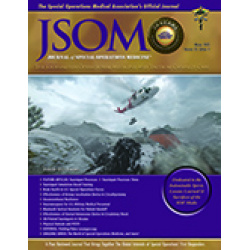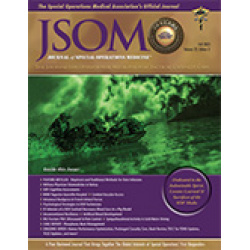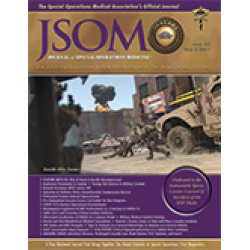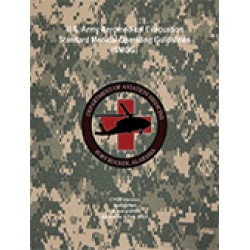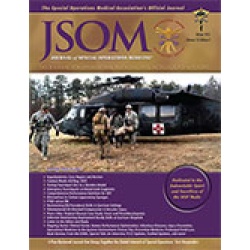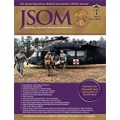Latest Products
Hypolipidemia in a Special Operations Candidate: Case Report and Review of the Literature
Strain JE, Vigilante JA, DiGeorge NW 15(4). 1 - 5 (Journal Article)
Background: A 19-year-old male military recruit who presented for a screening physical for US Naval Special Warfare Duty was found to have hypolipidemia. Medical history revealed mildly increased frequency of bowel movements, but was otherwise unremarkable. His presentation was most consistent with heterozygous familial hypobetalipoproteinemia (FHBL), and the patient was cleared for Special Operations duty. Methods: A literature search was conducted using PubMed/MEDLINE. Keywords included familial hypobetalipoproteinemia, heterozygous familial hypobetalipoproteinemia, abetalipoproteinemia, hypolipidemia, diving, special operations, and military. Results that included cases of familial hypobetalipoproteinemia were included. Results: Review of the literature reveals that FHBL is a genetic disorder frequently, but not always, due to a mutation in the apolipoprotein B (apoB) gene. Those with the condition should be screened for ophthalmologic, neurologic, and gastrointestinal complications. Analysis of the disease, as well as the absence of reported cases of FHBL in diving and Special Operations, suggest there is minimal increased risk in diving and Special Operations for patients who are likely heterozygous, are asymptomatic, and have a negative workup for potential complications from the disease. Conclusion: Individuals with presumed or proven heterozygous FHBL seeking clearance for Special Operations duty should be given precautions, undergo careful questioning for history of disease-specific complications, and should have a baseline evaluation. If negative, it seems reasonable to clear the patient for Special Operations and diving.


 Español
Español 